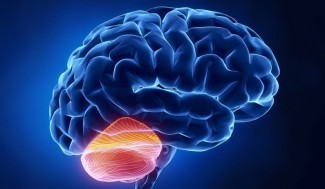A clinical trial conducted by Prof. Alexandra Durr's team (Sorbonne University.AP-HP) at the Paris Brain Institute and the Pitié-Salpêtrière Hospital AP-HP shows that despite the hopes raised in recent years, riluzole does not improve the clinical or radiological symptoms of patients suffering from spinocerebellar ataxia type 2. However, these results could provide valuable biomarkers for future trials. The results are published in Lancet Neurology.
Spinocerebellar ataxias are a group of genetic neurodegenerative diseases, heterogeneous from a clinical and genetic point of view. At present, more than 50 genes have been implicated. The main symptoms are impaired coordination, difficulties with gait balance, dysarthria and impaired ocular movements. There is currently little drug treatment for these conditions.
In recent years, positive results of riluzole, a therapeutic molecule already used against amyotrophic lateral sclerosis, had been reported for cerebellar ataxias. However, its effectiveness had not been proven, depending on the different subtypes of this disease. As ataxias differ greatly from one type to another, from one patient to another according to the stage of the disease, precise studies by subtype of ataxia were necessary.
Professor Alexandra Durr's team (Sorbonne University.AP-HP) at the Paris Brain Institute and the Pitié-Salpêtrière University Hospital AP-HP, took up the challenge for spinocerebellar ataxia type 2. The clinical trial ATRIL was conducted on 45 patients at a moderate stage of the disease, in eight reference centers, gathered within the French Neurogene network, a national reference center for rare diseases. In parallel with the treatment, researchers and clinicians acquired MRI data and clinical scores of ataxic symptoms.
The results of the study do not report any improvement in clinical or radiological signs in patients with spinocerebellar ataxia type 2, despite a good tolerance and the absence of adverse effects. However, the follow-up of patients during this trial provided valuable clinical and brain imaging data on the progression of the disease. This information could provide new biomarkers of the disease, which are essential for the evaluation of potential new treatments.
This result does not exclude a possible beneficial effect in other forms of ataxia but underlines the importance of evaluating treatments in homogeneous groups of patients, including in rare diseases.
Sources
https://www.thelancet.com/journals/laneur/article/PIIS1474-4422(21)0045…







